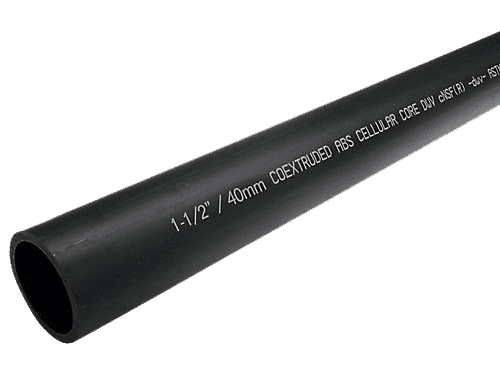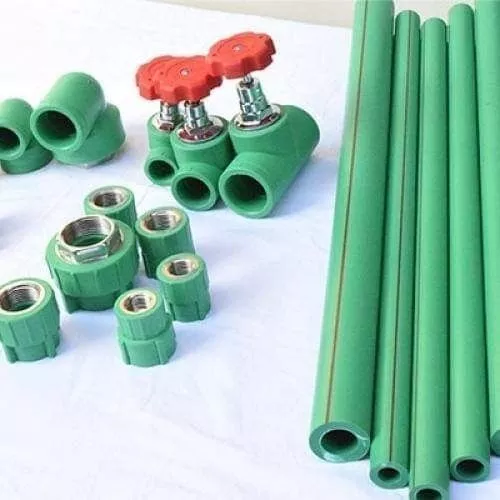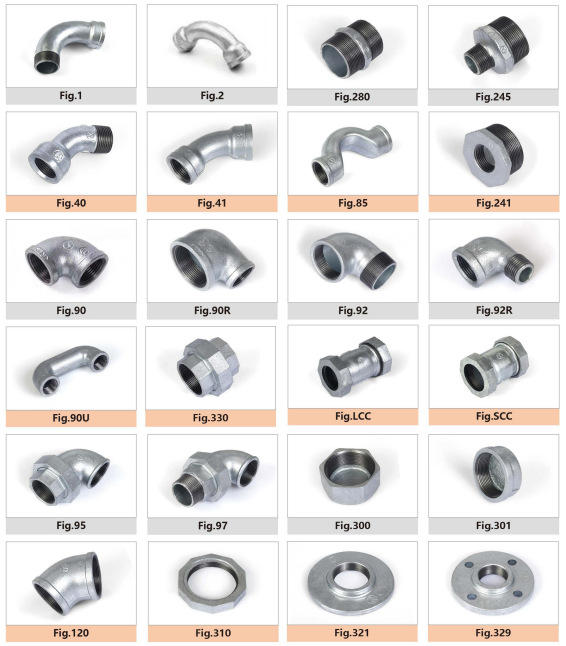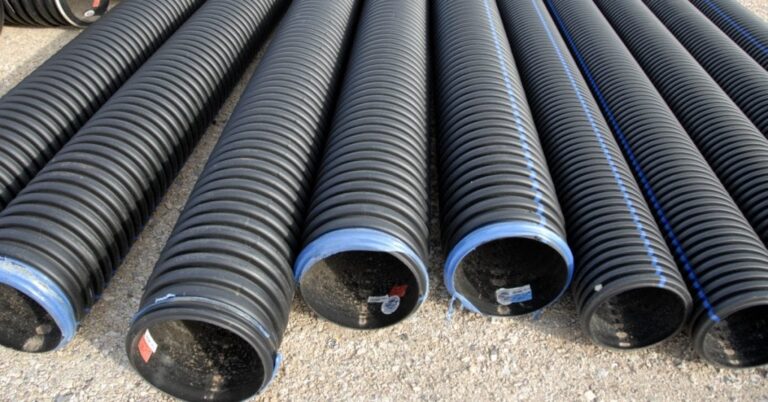What Is ABS Pipe?
ABS (Acrylonitrile Butadiene Styrene) pipe is a type of plastic piping that is used in a variety of applications. ABS pipe is lightweight, durable, and corrosion resistant, making it an ideal choice for a variety of plumbing and drainage projects. It is available in a variety of sizes and can be cut to fit any space. ABS pipe is also much easier to install than metal pipe, making it a popular choice for DIY projects.
Overview of ABS Pipe
One of the primary advantages of ABS pipes is their resistance to corrosion and chemical attack, making them suitable for both above-ground and underground use. They are commonly used in residential plumbing for waste and vent systems, as well as in commercial and industrial applications. ABS pipes are joined together using solvent cement, which creates a strong, leak-resistant bond when properly applied.
The smooth interior surface of ABS pipes promotes efficient fluid flow and minimizes clogs. These pipes are also known for their noise-reducing properties, making them a preferred choice for drainage systems in residential buildings.
In summary, ABS pipes are a versatile and durable option for various plumbing and drainage needs, known for their chemical resistance, ease of installation, and long-lasting performance.
Benefits of ABS Pipe
ABS pipes are a popular choice for many plumbing and drainage projects because of their durability and affordability. ABS pipes are made from acrylonitrile butadiene styrene, a type of plastic that is strong and resistant to many common chemicals. They are also lightweight and easy to install, making them an ideal choice for DIYers. In addition to being affordable and easy to install, ABS pipes offer a number of other benefits, including:
- High resistance to corrosion: ABS pipes are highly resistant to corrosion from chemicals, water, and bacteria, making them ideal for use in bathrooms, laundry rooms, and other wet areas.
- High temperature tolerance: ABS pipes can withstand temperatures up to 180 degrees Fahrenheit, making them suitable for hot water lines.
- Low maintenance: ABS pipes require minimal maintenance, as they do not require any sealants or lubricants to keep them functioning properly.
- Low cost: As mentioned previously, ABS pipes are among the most affordable pipes available. They are also very easy to find and purchase, making them a great choice for any budget-conscious homeowner.
ABS pipes are a great choice for any plumbing or drainage project. With their high resistance to corrosion and temperature tolerance, as well as their low cost and maintenance requirements, ABS pipes offer homeowners a reliable and affordable option for their plumbing needs.
Applications for ABS Pipe
ABS pipe is a thermoplastic material that is used in a variety of applications. It is used in residential and commercial plumbing systems, as well as in industrial processes like waste management. ABS pipe is made of a high-impact plastic that is lightweight and durable. This makes it an ideal choice for many applications, from water supply and drainage piping to chemical and industrial processes. ABS pipe is also resistant to many chemicals, making it an ideal choice for applications that involve corrosive materials.
ABS pipe is commonly used in water supply and drainage systems, as it is lightweight and easy to install. Its corrosion-resistant properties make it an ideal choice for areas where water is a concern. ABS pipe is also used in industrial processes, such as wastewater treatment, to transport corrosive materials safely. Additionally, ABS pipe is used for many sewage and drainage systems, as its non-corrosive properties make it ideal for these types of applications.
ABS pipe is quickly becoming a popular choice for many applications due to its lightweight, durable, and corrosion-resistant properties. From plumbing systems to industrial processes, ABS pipe is proving to be a great choice for many applications. With its many advantages, it is easy to see why ABS pipe is quickly becoming a go-to material for many projects.
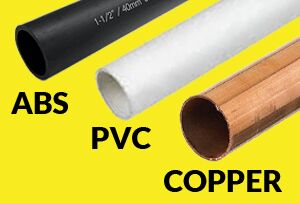
Types of ABS Pipe
ABS Pipe, or Acrylonitrile Butadiene Styrene, is a type of plastic pipe that is often used in residential and commercial plumbing systems. It is lightweight, easy to install, and provides excellent corrosion resistance. ABS Pipe is available in various sizes and grades, and is used for a variety of applications, from plumbing to building materials.
When it comes to ABS Pipe, there are two main types: Type 1 and Type 2. Type 1 is the most common and is typically used for residential plumbing and drainage applications. It is thinner and more flexible than Type 2 and has a higher resistance to corrosion. Type 2 ABS Pipe is thicker and stronger and is often used in commercial plumbing and building materials. It is less flexible than Type 1, but it is more resistant to chemicals and temperature changes.
Both types of ABS Pipe have their own advantages and disadvantages, and it is important to select the right type for the job. ABS Pipe is an excellent choice for plumbing and drainage applications, and with the right knowledge, it can be used in a variety of projects.
Installation of ABS Pipe
ABS pipe is a popular choice for plumbing and drainage applications due to its light weight, low cost, and ease of installation. Installation of ABS pipe is generally straightforward and requires only basic tools and materials. Depending on the size of the pipe, different methods of cutting and joining can be used. The most common methods involve using ABS cement, heat welding, or solvent welding. Proper installation requires preparation of the pipe ends, fittings and connections, and the correct application of joining techniques. Professional installation is always recommended for larger jobs, but DIYers can often handle smaller projects with relative ease. With proper preparation and installation, ABS pipe can provide years of reliable service.
Maintenance Considerations for ABS Pipe
ABS (Acrylonitrile Butadiene Styrene) pipe is one of the most widely used piping materials in the world and is a great option for both residential and commercial plumbing projects. It has many benefits, such as being lightweight, durable, and easy to install, but it also has some important considerations that should be taken into account when planning any plumbing project.
Firstly, ABS pipe should be inspected regularly for signs of damage or wear. This is because it can become brittle over time, especially if exposed to chemicals or extreme temperatures. Additionally, it is important to use the correct type of fittings and sealants when connecting ABS pipes, as some can cause the material to become brittle and therefore reduce its lifespan.
In addition to regular maintenance, it is important to consider the environmental impact of ABS pipe. While it is an environmentally friendly material, it should be recycled or disposed of responsibly to reduce its impact on the environment. Finally, it is important to choose a reputable supplier to ensure that the ABS pipe meets the necessary safety and quality standards.
Overall, ABS pipe is a great choice for a variety of plumbing projects but there are some important maintenance considerations to keep in mind. By following the above tips, you can ensure that your ABS pipe is properly maintained and will last for many years to come.
FAQs About the What Is ABS Pipe?
1. What is the difference between ABS and PVC pipe?
ABS (Acrylonitrile Butadiene Styrene) is a black plastic pipe used in residential drain, waste and vent systems. ABS is a harder, more chemical resistant plastic than PVC (Polyvinyl Chloride).
2. Is ABS pipe suitable for hot water applications?
Yes, ABS is suitable for hot water applications. However, it is important to note that the maximum temperature of ABS pipe is 200°F (93°C).
3. Is ABS pipe more expensive than PVC pipe?
No, ABS pipe is generally less expensive than PVC pipe. However, this can vary depending on the retailer and the size and type of pipe needed.
Conclusion
ABS pipe is a reliable and cost-effective option for many plumbing and drainage applications. It is lightweight, easy to work with, and highly resistant to corrosion and chemicals, making it an ideal choice for any plumbing project. Its flexibility makes it an ideal choice for tight spaces, and it can be used in cold or hot water systems. With the right fittings and connections, ABS pipe can be used in a variety of plumbing applications.

